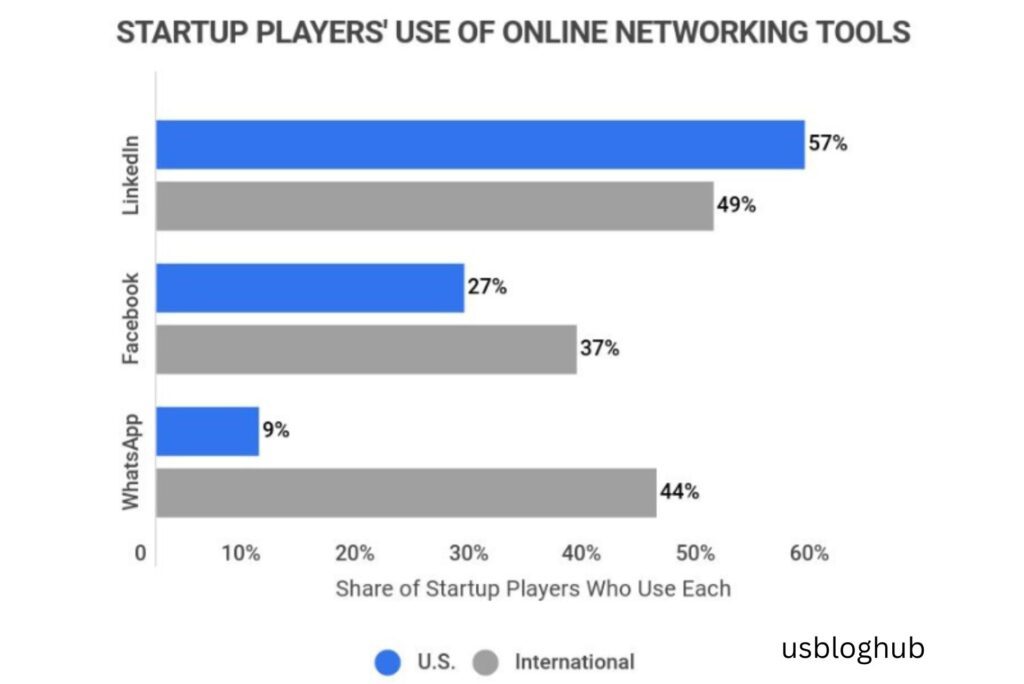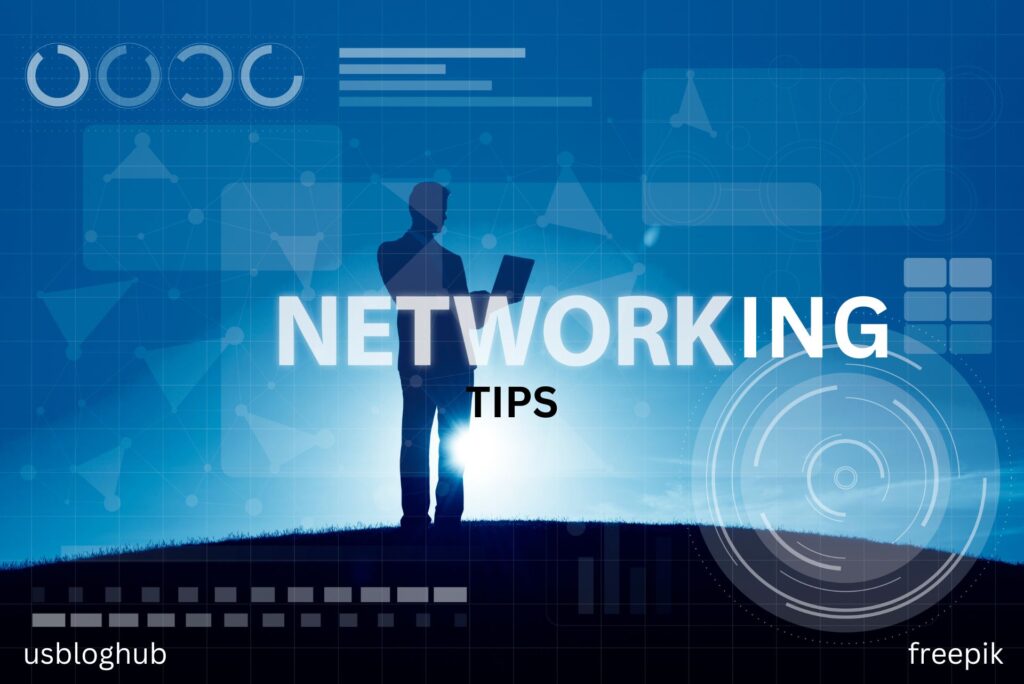Networking in business growth is a powerful tool that drives success by creating meaningful connections and opportunities.
Building a strong network is vital for business owners and entrepreneurs to boost their careers and grow their businesses. Networking is more than making connections—it’s about building meaningful relationships, sharing knowledge, and unlocking opportunities. In today’s competitive world, a strong network is a powerful driver of success.
Business networking takes time and effort—our guide will help you maximize your efforts and reap the benefits.
The Role of Networking in Business Growth
Networking provides access to new markets, potential clients, and valuable insights. It connects you with like-minded professionals, enabling you to understand industry trends and discover innovative solutions.
At a networking event, you meet an entrepreneur who has overcome the same challenge you face. Their insights save you time, prevent mistakes, and highlight how networking drives business growth.
Networking creates opportunities for partnerships that boost brand exposure and resources. Connecting with complementary businesses can uncover synergies that benefit and drive growth for both parties.
How Business Networking Works
Business networking is all about building relationships that can help you grow in your career and discover new opportunities. It’s something people have always done, but modern technology has made it much easier. As the saying goes, “It’s not what you know, but who you know.” Networking helps you find jobs, grow your business, hire the right people, and reach your goals. Today, people network by meeting face-to-face, joining groups, attending events, or connecting online. However, it’s important to do it the right way—just handing out business cards or sending mass emails won’t build real connections.
1 Increased access to job opportunities.
Networking in your field helps you find jobs, get referrals, sell your services, and build partnerships.
2 Increased visibility
Going to events and connecting with industry leaders online helps people notice you and recognize your work.
3 Business Grow

Online networking helped 78% of startups(source zippia) succeed, showing that connecting with the right people can grow your business.
When you network with someone, you can also connect with their contacts, which might lead to investors or customers if you leave a good impression.
Bryan Bejarano highlights that having a strong network helps him connect directly with potential clients, saving time on cold calls and meetings.
4Effective Recruiter.
Networking makes it easier to find good employees by getting trusted recommendations from your contacts.
Richard Clews, founder of Pants and Socks, hires employees through his network to find trusted talent.
He has hired many employees based on recommendations from business colleagues he met through networking.” he says. “It’s also great because you can return the favor and help someone get a job. (Study hubspot)
5 Creating a support system
No job is easy, so you can turn to your network for advice and support by sharing your challenges and asking questions.
Ashley Romer, an SEO Link Manager at PaperStreet Web Design, finds great support in a Slack community for women in SEO, where she shares ideas and solves challenges in her client projects. (Study hubspot)
6 Expand your knowledge
Your network can give you new ideas and helpful advice when you share problems or ask for feedback.
Ryan Turner, founder of E-Commerce Intelligence, believes networking helps him learn exclusive strategies and insights that business owners only share in personal settings after building genuine connections. (Study hubspot)
7 Build your confidence
Stepping out regularly helps you build social skills and confidence that improve other parts of your life.
Business owners and leaders need the confidence to connect with people and build relationships that help their businesses grow.
Common Networking Mistakes to Avoid
While networking is a powerful tool for business growth, many people make simple mistakes that limit their success. Here are some common networking errors you should avoid:
1. Talking Too Much About Yourself
Mistake: Many people go to networking events and only talk about their own business. They forget to listen and understand what others need.
Why it’s a problem: Networking is about two-way value. If you only promote yourself, people will lose interest and won’t trust you.
Real Example: In the early days of WeWork, the founders focused on building relationships by listening to what startups needed in an office space. They used that feedback to offer flexible workspaces. If they had only talked about their product without understanding others, WeWork wouldn’t have grown so fast.
2. Not Following Up
Mistake: You meet someone great, have a good chat, then never follow up.
Why it’s a problem: One meeting isn’t enough to build a strong connection. Most business opportunities come after consistent follow-ups.

Real Example: Sara Blakely, founder of Spanx, once said she got her first big retail deal by following up repeatedly, politely but persistently — until she got a meeting. Her success didn’t come from one conversation, but from staying in touch.
3. Not Being Clear About What You Do
Mistake: You give a confusing or boring introduction about your business.
Why it’s a problem: If people don’t understand what you do in the first 30 seconds, they’ll forget you.
Real Example: When Dropbox first launched, they explained their service as “your files, anywhere you go.” Simple. Clear. That short sentence helped investors and customers instantly understand the value.
4. Ignoring Online Networking
Mistake: You focus only on face-to-face events and ignore platforms like LinkedIn, Twitter (X), or professional groups.
Why it’s a problem: In 2025, online networking is just as powerful — and often faster.
Real Example: The startup Morning Brew built much of its early success by engaging on Twitter and LinkedIn. They shared useful content and replied to people daily, creating a strong network that led to business deals, hires, and growth.
How to Measure Your Networking Success
I hired a business coach who helped me understand that not all networking events offer the same opportunities, and I learned some useful tips from this experience.
- Google Analytics shows how much traffic your website gets from social media, helping you see which platforms work best and how visitors interact with your site.

- Activities can be grouped based on whether they happen online, offline, or both.
- Keep track of all the time you spend on networking, including prep, travel, and recovery, as it can add up quickly.
- Track how many referrals you get from each group, as these are genuine connections shared by others.
- Track how many referrals you give to each group; if most are just your purchases, it might mean your network isn’t strong or the group isn’t a good match.
- Keep track of how many sales you make from each group, as this shows the total deals you close.
- Add up the total money you earn from sales in each group to see which group brings in the most income.
- Direct visits to your website, tracked by Google Analytics, show how many people typed your URL directly into their browser, often after seeing your information or business card, reflecting genuine interest
Networking Tips for Business Professionals
I realized how important professional networking is but struggled to find good resources on it, even though there’s plenty of material on related topics like communication.
I learned networking by asking successful people for advice, making mistakes, and meeting great people along the way.
1. Be Helpful
The best networking tip is to help others because it builds strong connections and makes them more likely to help you back.

2. Attend business networking events.
The best way to meet business professionals is to attend events where you can talk one-on-one, learn about them, and share what you do.
“Valentin Wallyn, founder of FindyMail, believes meeting people face-to-face at events builds much stronger relationships than online interactions, even if you maintain those connections digitally later.”(Study hubspot)
3. Create a LinkedIn profile.
LinkedIn is a professional platform with over 1 billion members and 67 million companies, making it a great place for networking and job opportunities.On LinkedIn, you can meet people from your dream company, learn about their hiring process, and make friends with experts in different fields.
Gower says that by staying active on LinkedIn, building a network, and sharing useful posts, people remembered him and contacted him for his services within months.
4. Find a Mentor
To grow your network, find a mentor by listing 3-7 people you admire, connect with them, learn from them, and even work for free to earn their trust and access their network. When you help your mentor, you benefit from their experience and connections, making it a win-win relationship for both of you.
5. Trying Is Better Than Not Trying
Networking is about meeting new people, and even if it feels awkward, it’s better to try than not while you keep improving your skills.
If you feel unsure or think your pitch isn’t perfect, just go for it and send the message or make the call.
Final Thought
Networking is crucial for businesses (performance) and entrepreneurs because it helps them make connections, learn from others, and find new opportunities to succeed.
Networking works best when it’s genuine and goal-focused, helping entrepreneurs grow, get noticed, and find new opportunities for their businesses and careers.
